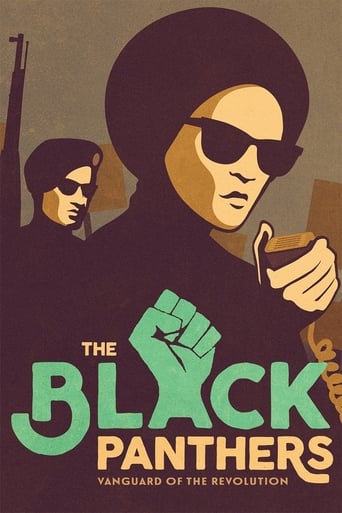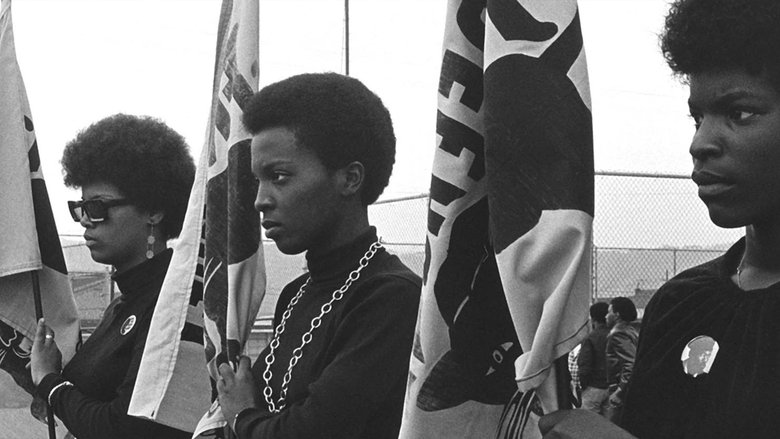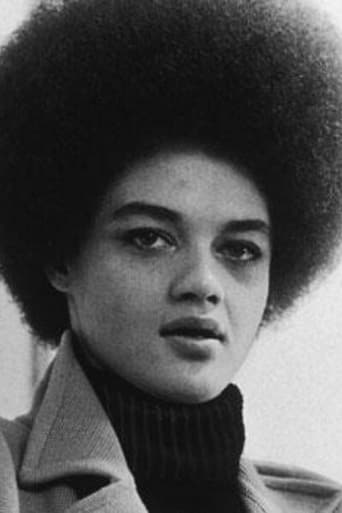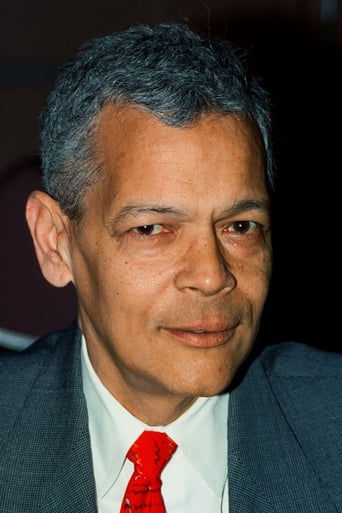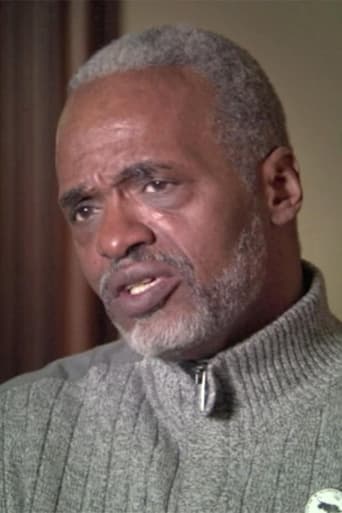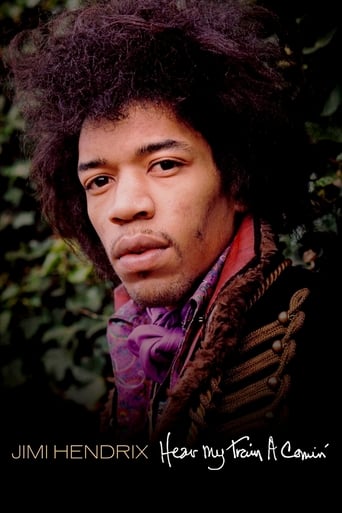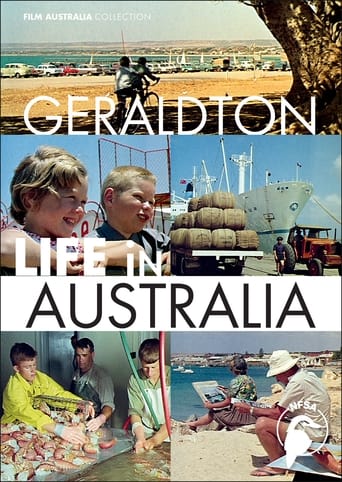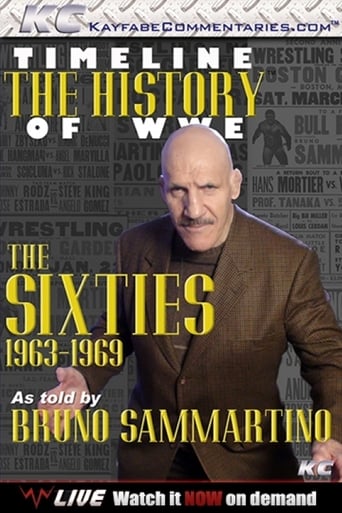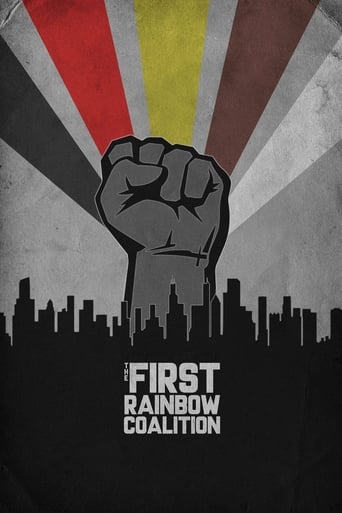The Black Panthers: Vanguard of the Revolution (2015)
The story of the Black Panthers is often told in a scatter of repackaged parts, often depicting tragic, mythic accounts of violence and criminal activity; but this is an essential story, vibrant, human; a living and breathing chronicle of a pivotal movement that birthed a new revolutionary culture in America.
Watch Trailer
Cast


Similar titles
Reviews
Save your money for something good and enjoyable
I like movies that are aware of what they are selling... without [any] greater aspirations than to make people laugh and that's it.
If the ambition is to provide two hours of instantly forgettable, popcorn-munching escapism, it succeeds.
It's entirely possible that sending the audience out feeling lousy was intentional
This is a film to rally the faithful. But it needs more than that to justify the sub-title 'Vanguard of the Revolution', when we're looking at a movement that was fatally split in half through conflict between its leaders, in the style of most far-left groups, and which has effectively ceased to exist. "We were making history" enthuses one supporter. Hmm...True, director Stanley J. Nelson Jr. has made quite a strong case that the split was skilfully and secretly provoked by the FBI under J. Edgar Hoover, who openly declared the Panthers to be a prime threat to national security. But there's nothing new about divide-and-rule, and a united party leadership ought to be proof against it.One philosophical survivor of the movement sums it up well in an ironical post-mortem. "The strength of the Panthers was its ideals and its youthful enthusiasm. The weakness of the Panthers was its ideals and its youthful enthusiasm." At times, the movement can look like a dress-rehearsal for the Nation of Islam, with its solemn drill parades. At others, it just looks like hooligans on the rampage. Those seeking to be convinced by cogent and consistent argument are liable to come away disappointed. "I'm important enough to be arrested. I'm a real Panther now." says one of its senior officers, as though he was fourteen years old. And when Bobby Seale fails to be elected mayor of Oakland, the Panthers cry "He's going to be OUR mayor!" Finally, you're better not looking too closely at Cleaver and Newton. Especially Cleaver, who went careering round in circles, and ended up as a right-wing Republican, voting for Reagan.
This is a heroic attempt at a one-film history of the Panthers. It suffers only from its own ambition- this is too complex a subject to offer a "history of" in the length of a single feature film. The best parts of the film are the stirring, emotional recounts of battles with agents of the state by revolutionaries who were on the front lines, heroes most of us have never before heard of. The portraits offered of the iconic Party leaders were a bit more problematic, or simply lacking. The presentation of Huey Newton is far too simplistic. One comes away with a sketch of a sociopath who the Party naively turned into an icon. While there is credible documentation of Newton's erratic behavior and drug abuse after spending many years in prison on likely trumped up charges, watching this film you would not know of Newton's extensive and influential writings on revolutionary theory, including his ground-breaking advocacy of the Gay- Equality struggle. Other important strands of Panther history were simply lacking. There is, for instance, no mention of George Jackson or the Angola Three. Still, a fine attempt to do a lot with too little space and time.
*May contain spoilers, but not really* The first thing that struck me about this film was the absence of talk about revolutionary theory or even tactical practice. With a name like it has one might think it would unpack the nuanced and much debated term "vanguard" a little more. The influence of Mao Tse Tung thought is completely absent apart from a sign that says "Chairman Mao says: Free Huey," which is never explained or even mentioned. Primarily the film tells the story of what happened, but does not explore motivations, expectations, hopes, dreams or rationale any more than is necessary for a cursory tally of events.However, it is actually an entertaining film for precisely that reason. There are guns, there is action, there is insanity; or more properly put, allegations of insanity. Actually, the film is pretty sensationalistic. If you're a radical interested in an analysis of the BPP this is not the place to look. I get the sense that the interviews in the film are brutally chopped up.My favorite part of the film was also my favorite part of BPP history and that is Fred Hampton's work in Chicago and his resulting assassination by agents of the state. The film actually does make a pretty good case for why Hoover's FBI, the Nixon administration and the cops in Chicago considered him dangerous. However, one of the strongest arguments for his perceived danger from the state (and I do think it was justified) is the eloquence of his speeches and clips of these speeches are sadly lacking. One my favorite speeches is the one where he says: We've got to face the fact that some people say you fight fire best with fire, but we say you put fire out best with water. We say you don't fight racism with racism. We're gonna fight racism with solidarity. We say you don't fight capitalism with no black capitalism; you fight capitalism with socialism.We ain't gonna fight no reactionary pigs who run up and down the street being reactionary; we're gonna organize and dedicate ourselves to revolutionary political power and teach ourselves the specific needs of resisting the power structure, arm ourselves, and we're gonna fight reactionary pigs with INTERNATIONAL PROLETARIAN REVOLUTION. That's what it has to be. The people have to have the power: it belongs to the people.In the film this speech was cut off after the first two sentences.Additionally, the film focused solely on what was going on with the Panthers at the time and completely obfuscated the context of the time. It made mention of white allies but it did not talk at all about the Weather Underground, for example, who issued a "Declaration of War" against the US government in response to the assassination of Hampton and subsequently bombed multiple government buildings.Like I said, this is an entertaining movie and some parts are even inspiring, but if you're looking for the definitive story of the Black Panther Party, this is not the place.
When was the last time a state legislature infringed on the right guaranteeing a citizen's right to openly carrying a gun? Well, Stanley Nelson's excellent documentary The Black Panthers answers that question. Imagine then governor Ronald Reagan and the conservatives in the California legislature, won over temporarily, to the idea of gun control by the sight of the Black Panther Party marching into the statehouse in Sacramento, carrying loaded shotguns and rifle, as state law and the Constitution allowed. Challenging political order and mayhem, who were this new breed of "Negroes," dressed from head to foot in black? Why did they did they project an image of militancy and armed purpose? Today's headline grabbing evidence of police brutality and racial injustice to black people have not spawned the same response that gave birth to the BPP in response to oppression and marginalization, as #-tag Black Lives matter. Why? Nelson has recovered through use of newsreel, take, take outs from Eye on the Prize and interviews with aging ex-Panthers, to dust off 50 years of ignorance. We are transported to another galaxy of time. It was an age of war and revolution. Algeria, Cuba, Vietnam. It was also an age of turmoil that broke the back of colonial domination and smashed in the chains of vote denial in the American South, albeit through non-violence, as Ava DuVernay's striking film Selma serves as clear evidence. But what worked in the South couldn't and wouldn't in the North because voting rights were not the issue. Racial injustice and the ever-present violence and brutality of the police were. (Chester Himes' "Coffin Ed and Grave Digger Jones" mysteries, recreate life in urban ghettos.) The Black Panthers gives body to the logic of a society that marginalized and trivialized and isolated a third of its citizens through naked violence. And, as such, it birthed the BPP in Oakland, California in 1966. The choice of the symbol of the Black Panther is significant. In Mayan culture, the animal, a fierce fighter, is a totem of aggressiveness and power. It does roar. It won't strike unless provoked. The outbreak of the Panthers on the scene was merely an acceleration of a process of political awakening that had been building for some time at home and abroad. Stokley Carmichael had called for Black Power in the heart of Mississippi. And James Baldwin's 1963 The Fire Next Time, according to the Negro Spiritual, promised a conflagration as the wide range of injustices morphed into a call for political action. Furthermore, the BPP saw itself in the vanguard of sweeping change. To exploit the fever of heated times, it harnessed revolutionary gestures and emotions. So, six young men began organizing activists to confront the local police with guns. They spurned the appeal of Nation of Islam that preached self-segregation. They also rejected the belief that society could be made better by the change of the human heart. The zeitgeist of revolution had taken hold. If the US was fighting for "democracy and freedom and liberation from Communism" in Vietnam, the BPP figured that they were going to protect and fight for the interests of their own people that Washington sorely neglected. So, they took up the gun; they didn't confront the police but stayed at a respectful distance, to see that blacks weren't abused. Like their namesake, they remained vigilant unless otherwise provoked. The adoption of the powerful image of a gun had a revolutionary source: after all Mao did affirm "power grows out of the barrel of a gun?" The Party had an all-embracing slogan Power to the People. It had an ideology--and a 10-point program What We Want Now! It had a newspaper; it had revolutionary art; it had a "military force," and above all, it had what Carlyle called: beginners, men who had qualities to serve its ideas and ideals in the persons of Bobby Seale, Hotspur-like Huey P. Newton, and Eldridge Cleaver. Government repression and internal backstabbing over who upheld the purity of the BPP helped destroy the party is this gripping film.

